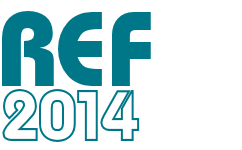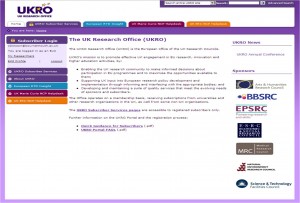 It’s a beautiful summer’s day and to celebrate the new academic year the Research Development Unit has some exciting news – the launch of the BU Research Development Fund!
It’s a beautiful summer’s day and to celebrate the new academic year the Research Development Unit has some exciting news – the launch of the BU Research Development Fund!
The Research Development Fund (RDF) is open to BU academics and will provide selective support to research initiatives considered to be of strategic importance to BU. There are two strands to the RDF: i) Small Grants Scheme (up to £2k per application); and ii) Large Collaborative Grants Scheme (up to £25k per annum, must include two or more Schools). It is envisaged that each year approximately 20 small grants will be awarded and one large collaborative grant.
Awards will only cover direct costs (i.e. overheads and established staff costs will not be reimbursed). Applications need to include a precise breakdown of costs calculated using full economic costing (fEC) methodology – this will be calculated for you by the CRE Operations team.
All decisions on funding will be made by the University R&E Forum (UREF).
An overview of the two schemes is provided below. For further information please read the Research Development Fund Policy.
RDF – Small Grants Scheme (up to £2k per award) – There will be three competitions per annum. Academic staff wishing to apply must submit an application form to the PVC (Research, Enterprise and Internationalisation) via the RDU by the scheme deadlines:
- 31 October 2011
- 28 February 2012
- 31 May 2012
Priority will be given to applications that involve staff from two or more Schools and/or those from early career researchers.
Examples of research activities covered by the RDF include:
- Pilot projects
- Pump-priming
- Interview transcription
- Fieldwork
- Visiting major libraries, museums, other research institutions, etc.
- Organisation of an academic conference at BU with external participants
- Attendance at external networking events leading to collaborative research proposals
- Meetings with external organisations to establish collaborations
- Preparation of specialist material or data
- Short-term Research Assistant support or replacement teaching
- Research consumables and equipment (providing it is clear these would not normally be purchased by the School)
To apply for a Small Grant, please complete the RDF-SGS application form.
RDF – Large Collaborative Grants Scheme (up to £25k per award) – There will be one competition per annum. Academic staff wishing to apply must submit an application form to the PVC (Research, Enterprise and Internationalisation) via the RDU by the scheme deadline:
- 1 December 2011
The RDF – Large Collaborative Grants Scheme aims to provide funding for the development of large-scale, complex, inter/multi-disciplinary collaborative research activities leading to external funding. Applications must involve academic staff from at least two BU Schools. Priority will be given to applications that meet the following criteria:
- In line with BU’s emerging Research Themes
- Include external organizations (particularly SMEs and/or international organizations)
- In line with the strategic priorities of major funding bodies (such as the UK research councils, European Commission, etc)
- Clearly beneficial to BU’s submission to REF2014
Examples of research activities covered by the RDF include:
- Pilot projects
- Pump-priming
- Meeting expenses
- Travel to proposed collaborators
- Attendance at external networking events with the aim of expanding the network
- Preparation of specialist material or data
- Short-term Research Assistant support or replacement teaching
- Consumables and equipment (providing it is clear these would not normally be purchased by the School)
- Fees for external proposal support and review
To apply for a Large Collaborative Research Grant, please complete the RDF-LCGS application form.



 Back in April it was announced that BU would be launching an Open Access Publication Fund in August 2011 (see the previous blog post here:
Back in April it was announced that BU would be launching an Open Access Publication Fund in August 2011 (see the previous blog post here: 












 We had two great events this week both hosted by the Digital Hub at Bournemouth University. The Digital Day on the 19th July took place at Kimmeridge House on Talbot Campus and the Digital Dinner at the Chewton Glen.
We had two great events this week both hosted by the Digital Hub at Bournemouth University. The Digital Day on the 19th July took place at Kimmeridge House on Talbot Campus and the Digital Dinner at the Chewton Glen.

 I have a big paper out today on the Laetoli footprints in Tanzania. I am not first author, but still very proud of the paper. Laetoli is the oldest footprint site known at over 3.75 million years and was first discovered in the late 1970s by the Leakey’s. It consists of a couple of trails each of a dozen prints or so preserved in volcanic ash and is a site that has been argued over ever since its discovery with different teams interpreting the prints in different ways often basisng their arguements on specific prints. The likely print maker is Australopithecus afarensis which is perhaps better known by the famous skelton called Lucy. Some say the prints represent a primitive foot anatomy, function and gait, while other claim a more modern form and foot function. One of the challenges here has been the lack of an objective methodology to allow different hypothesis to be explored. At the heart of my current NERC grant with Liverpool University is a new objective approach based on calculating a mean footprint from a trail, which can then be statistically compared to others. This provides the first objective method with which to interpret ancient footprint trails. The paper published in the Journal of the Royal Society Interface today applies this method to the Laetoli prints to good effect resolving, in our view at least, over 30 years of argument!
I have a big paper out today on the Laetoli footprints in Tanzania. I am not first author, but still very proud of the paper. Laetoli is the oldest footprint site known at over 3.75 million years and was first discovered in the late 1970s by the Leakey’s. It consists of a couple of trails each of a dozen prints or so preserved in volcanic ash and is a site that has been argued over ever since its discovery with different teams interpreting the prints in different ways often basisng their arguements on specific prints. The likely print maker is Australopithecus afarensis which is perhaps better known by the famous skelton called Lucy. Some say the prints represent a primitive foot anatomy, function and gait, while other claim a more modern form and foot function. One of the challenges here has been the lack of an objective methodology to allow different hypothesis to be explored. At the heart of my current NERC grant with Liverpool University is a new objective approach based on calculating a mean footprint from a trail, which can then be statistically compared to others. This provides the first objective method with which to interpret ancient footprint trails. The paper published in the Journal of the Royal Society Interface today applies this method to the Laetoli prints to good effect resolving, in our view at least, over 30 years of argument!










 Fourth INRC Symposium: From Clinical Applications to Neuro-Inspired Computation
Fourth INRC Symposium: From Clinical Applications to Neuro-Inspired Computation Writing policy briefs
Writing policy briefs Upholding Excellence: The Concordat to Support Research Integrity
Upholding Excellence: The Concordat to Support Research Integrity Today’s Documentation Will Serve Tomorrow’s Justice
Today’s Documentation Will Serve Tomorrow’s Justice ECR Funding Open Call: Research Culture & Community Grant – Application Deadline Friday 12 December
ECR Funding Open Call: Research Culture & Community Grant – Application Deadline Friday 12 December MSCA Postdoctoral Fellowships 2025 Call
MSCA Postdoctoral Fellowships 2025 Call ERC Advanced Grant 2025 Webinar
ERC Advanced Grant 2025 Webinar Horizon Europe Work Programme 2025 Published
Horizon Europe Work Programme 2025 Published Horizon Europe 2025 Work Programme pre-Published
Horizon Europe 2025 Work Programme pre-Published Update on UKRO services
Update on UKRO services European research project exploring use of ‘virtual twins’ to better manage metabolic associated fatty liver disease
European research project exploring use of ‘virtual twins’ to better manage metabolic associated fatty liver disease